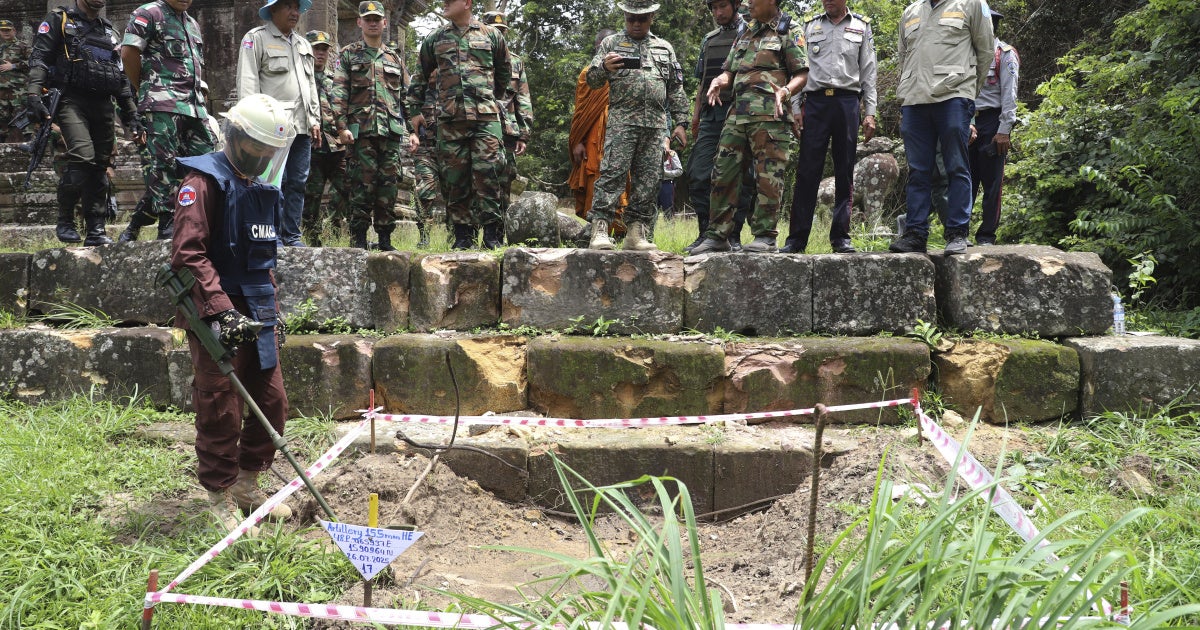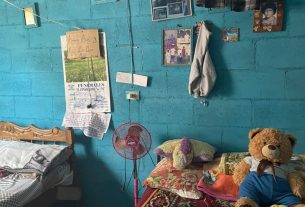On October 25, 10-year-old Sern Sovann died from an explosion after reportedly bringing home an item from a nearby field in Cambodia’s Preah Vihear province near the border with Thailand. The blast also seriously injured his father.
The Cambodian Mine Action Centre found that the explosion was caused by an unexploded M-85 artillery-delivered submunition fired into Cambodia by the Thai military during July’s border conflict between the two countries. The Thai military denied the allegation, asserting that photographs showing the effects of the detonation do not match the damage caused by the artillery-delivered cluster munitions it stockpiles.
Cluster munitions can be delivered by aircraft or ground-launched projectiles, missiles, and rockets. They open in mid-air and disperse dozens and even hundreds of smaller submunitions, also called bomblets, over an area the size of several football fields. Many submunitions fail to explode on initial impact, leaving duds that act like landmines, posing a threat to civilians and relief efforts for years and even decades later.
While Thai authorities appeared to admit using the widely banned cluster munitions during the July 24–28 border clashes, they claimed that such munitions were only used against military targets and have no lingering long-term effects on civilians.
Although neither Thailand nor Cambodia is a party to the Convention on Cluster Munitions, which prohibits member countries from using, producing, or stockpiling this type of weapon, Human Rights Watch considers any use of the weapon to be unlawfully indiscriminate, in violation of international humanitarian law.
Cambodia should seek a competent and impartial international organization or state party to the convention to promptly investigate Sern Sovann’s death, so that the country responsible can, at a minimum, provide compensation to his family.
Following the October 26 Kuala Lumpur peace accord between Thailand and Cambodia, the two countries should collaborate to survey, mark, and clear cluster munition remnants to protect civilians from harm. Both countries should also ratify the Convention on Cluster Munitions and help ensure no other civilians are killed or maimed by these weapons.



